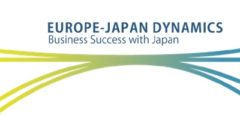Please enjoy fresh & hot news from Japan with comments by Europe-Japan Dynamics.
21 Jan. “Kansai One Pass”, a new railway card for overseas visitors to Osaka region
JR West (Japanese railway serving between regions Osaka and Yamaguchi) will be selling a new card, “Kansai One Pass”. It is an IC card on which users may charge up to 20,000 Yen. The card will allow foreign visitors to take trains across nine major private and public railways in the Osaka and its neighbouring areas.
Comment: This card looks convenient. Why is it addressed to foreign visitors only? It will be useful for the Japanese, too.
22 Jan. Three PC vendors released new products, while in the merger talk
Three PC vendors, Toshiba, Fujitsu and VAIO (separated from SONY), which are close to agreement of business merger, released new products one after the other. It is worth watching what USP (Unique Selling Point) the merged company would show in the PC market place, where a product difference has become invisible due to maturity of the products.
Comment: Product maturity of PC signals need for revolutionary new ideas.
25 Jan. Japanese trade deficit reduced in 2015 for the first time since the East Japan earthquake disaster
The Ministry of Finance announced in the trade statistics (breaking news) of 2015 that “the trade balance” was a deficit of 2,832,200 million yen (CHF 24’180.3 million). While the deficit continued in the past five years in a row, the volume of the deficit decreased by about 10 trillion yen. The Ministry says that lower crude oil price last year contributed significantly to the deficit reduction. It was the first reduction since the East Japan great earthquake disaster in 2011.
Comment: The import of crude oil increased much for the electric power generation replacing the nuclear plants in Japan after the East Japan great earthquake disaster. All the nuclear plants in the country stopped operating after the great earthquake.
26 Jan. Ministry of Health, Labour and Welfare, taking measures to prevent retirement from work by cancer patients
Ministry of Health, Labour and Welfare starts taking the measures that cancer patients may continue working while being treated. Over thirty per cent (30%) of cancer patients quite a job to continue treatment. They lose financial source to support living, despite an increase of a survival rate by the improvement of medical care. The Ministry will create a template document for a doctor and an employer of the patient concerned to exchange information about the status of the patient and the work, and plans to urge employers to support the patients.
One out of two Japanese population suffer from cancer.
Comments: It is a social responsibility to prevent people from suffering from financial difficulties because of the disease. Cooperation between the Government, doctors and companies is indispensable to support working patients.
27 Jan. Toyota, cooperating with Suzuki to address newly developing economies
We have learned that Toyota Motor Corporation is looking into cooperation with Suzuki, a major vendor of light automobile (a cubic capacity of 550 cc. or less). Toyota’s major stake is market development in India where Suzuki has 40% of market share, and Suzuki’s technologies for environment friendly automobiles and safety, which requires huge investment. Toyota expects to capture larger market share in newly developing economies, where demand for light automobiles is high.
Comment: Buying power of newly developing economies requires adjustment of corporate strategy to automobile giants.
- All the news items are picked up from “Asahi Digital”, and summarized and translated by Europe-Japan Dynamics. These are not an official translation by the Asahi Newspaper.


